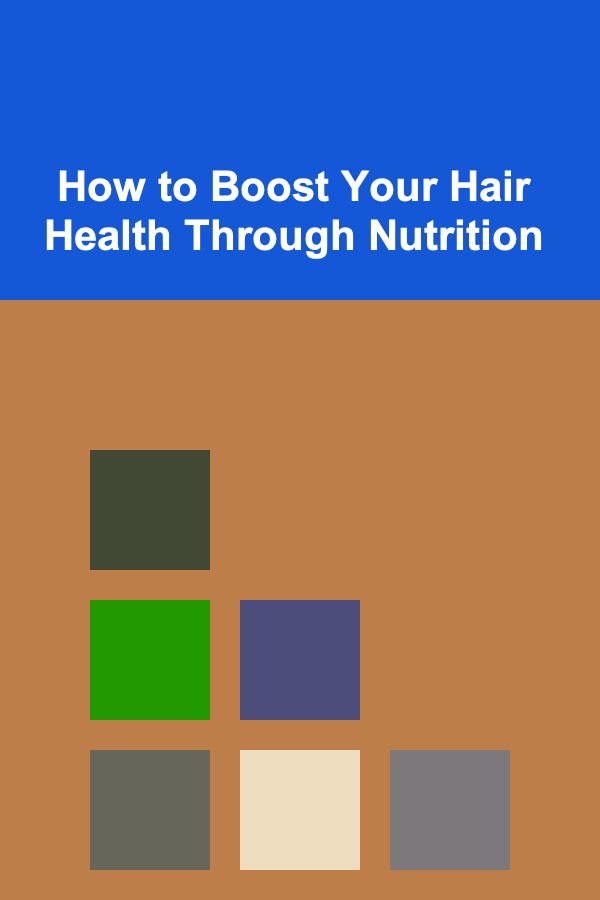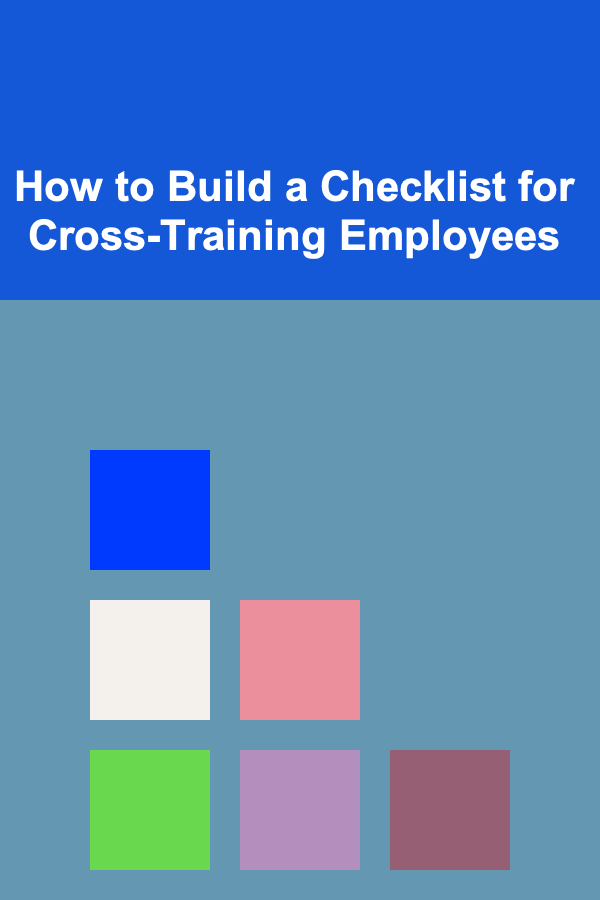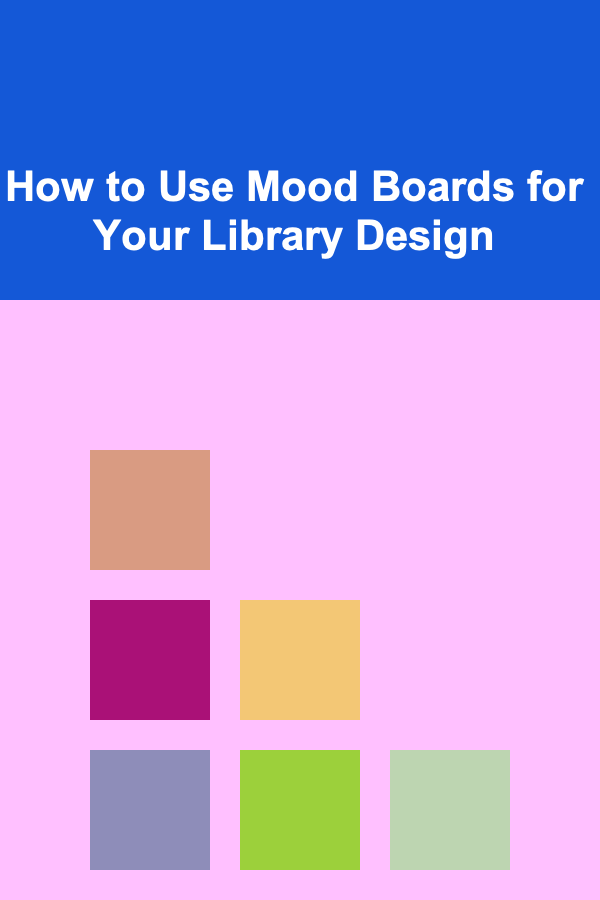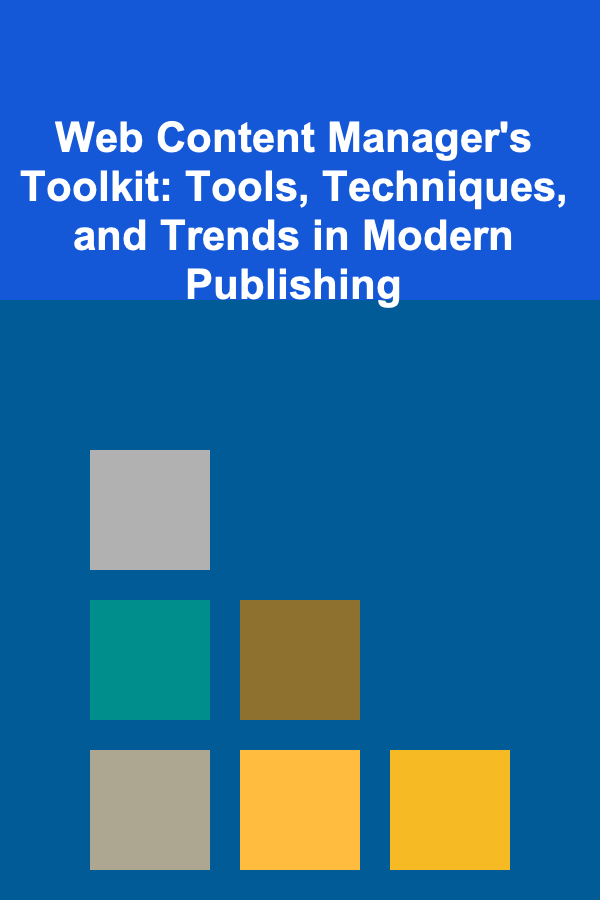
How to Boost Your Hair Health Through Nutrition
ebook include PDF & Audio bundle (Micro Guide)
$12.99$11.99
Limited Time Offer! Order within the next:

Hair health is often a reflection of the body's overall condition, and just like the skin or nails, hair needs proper nourishment to thrive. While genetics play a significant role in the structure and growth of hair, the foods you consume have a substantial impact on your hair's health, strength, and shine. A diet rich in essential vitamins, minerals, and macronutrients can boost hair growth, prevent hair loss, and improve the overall appearance of your hair.
In this article, we will explore how various nutrients affect hair health and provide you with practical tips on how to improve your diet for healthier hair. From understanding the role of key vitamins and minerals to identifying the best foods for hair growth, this guide will help you make informed dietary choices to support and enhance your hair health.
The Importance of a Balanced Diet for Hair Health
Just like any part of the body, your hair requires a consistent supply of nutrients to grow strong and healthy. Nutrients such as proteins, vitamins, and minerals are essential for cell growth, and this is especially true for the cells in your hair follicles. A deficiency in any of these vital nutrients can lead to thinning hair, slow growth, or even hair loss.
The health of your hair is tied directly to the nutrients that reach the hair follicles through your bloodstream. This means that ensuring your body receives adequate nourishment is critical for optimal hair health. Inadequate intake of key nutrients may cause hair to become brittle, weak, or excessively dry, making it more prone to damage.
In the following sections, we will discuss some of the most important nutrients for hair health and the foods you should include in your diet to keep your hair looking its best.
Key Nutrients for Healthy Hair
1. Protein
Hair is primarily made of keratin, a protein that forms the structure of each strand. This makes protein one of the most crucial nutrients for healthy hair. Without enough protein in your diet, your hair may become weak and prone to breakage. A lack of protein can also lead to slower hair growth or hair thinning.
Best Sources of Protein for Hair Health:
- Lean meats like chicken, turkey, and fish.
- Eggs, which are a rich source of complete protein and biotin.
- Nuts and seeds, such as almonds, walnuts, and chia seeds.
- Legumes, including lentils, chickpeas, and beans.
- Dairy products like yogurt and cheese.
2. Omega-3 Fatty Acids
Omega-3 fatty acids are essential fats that our bodies cannot produce on their own. These fats help maintain a healthy scalp, improve hair texture, and promote hair growth. Omega-3s also play a role in preventing dry, flaky scalps that can lead to dandruff and irritation.
Best Sources of Omega-3s for Hair Health:
- Fatty fish such as salmon, mackerel, sardines, and herring.
- Flaxseeds and chia seeds, which are plant-based sources of omega-3s.
- Walnuts and hemp seeds.
- Algal oil, a plant-based supplement derived from algae, which is especially helpful for vegetarians and vegans.
3. Vitamin A
Vitamin A is a powerful antioxidant that plays a critical role in maintaining healthy skin and promoting hair growth. It helps produce sebum, an oily substance that naturally moisturizes the scalp and keeps the hair hydrated. However, too much vitamin A can cause hair loss, so it's important to maintain a balanced intake.
Best Sources of Vitamin A for Hair Health:
- Carrots, which are rich in beta-carotene (a precursor to vitamin A).
- Sweet potatoes, another excellent source of beta-carotene.
- Spinach and kale, which provide both vitamin A and other nutrients like iron.
- Eggs and dairy products, which contain retinol, the active form of vitamin A.
4. Vitamin C
Vitamin C is an essential nutrient that promotes collagen production, which is necessary for the structure of hair. It also helps the body absorb iron, which is critical for healthy hair growth. Vitamin C's antioxidant properties help protect hair follicles from oxidative stress, which can damage hair and inhibit growth.
Best Sources of Vitamin C for Hair Health:
- Citrus fruits like oranges, lemons, and grapefruits.
- Bell peppers, which contain more vitamin C than citrus fruits.
- Strawberries and kiwis.
- Broccoli and Brussels sprouts, which are excellent non-fruit sources of vitamin C.
5. Vitamin D
Vitamin D is essential for healthy hair follicles, and a deficiency in this vitamin has been linked to hair loss, including a condition known as alopecia areata. Vitamin D helps to stimulate hair follicles, encouraging hair growth and promoting the shedding of old hair to make room for new growth.
Best Sources of Vitamin D for Hair Health:
- Fatty fish, such as salmon and tuna.
- Egg yolks.
- Fortified foods, including certain plant-based milks and cereals.
- Sunlight, as the body can synthesize vitamin D when exposed to sunlight.
6. Vitamin E
Vitamin E is another antioxidant that helps protect the scalp and hair from oxidative stress and damage. It promotes healthy circulation to the scalp, which can help nourish the hair follicles and improve hair growth. Vitamin E also plays a role in reducing scalp inflammation and supporting hair elasticity.
Best Sources of Vitamin E for Hair Health:
- Nuts, particularly almonds and sunflower seeds.
- Spinach and kale, which are high in vitamin E.
- Avocados, which contain both vitamin E and healthy fats.
- Olive oil, a great source of vitamin E and other hair-healthy nutrients.
7. Iron
Iron is a critical mineral that plays a key role in the transportation of oxygen to the hair follicles. A deficiency in iron can lead to hair loss, especially in women who experience menstrual cycles. Adequate iron levels support hair growth and help prevent the thinning of hair.
Best Sources of Iron for Hair Health:
- Red meat and poultry, which are rich in heme iron, the most bioavailable form of iron.
- Leafy greens like spinach and kale, which contain non-heme iron.
- Legumes such as lentils, chickpeas, and beans.
- Fortified cereals and tofu.
8. Zinc
Zinc plays an important role in hair tissue growth and repair. It also helps maintain the oil glands around the hair follicles, preventing scalp issues like dryness and dandruff. Zinc deficiency can lead to hair loss and slow hair growth, so it's important to include sufficient zinc in your diet.
Best Sources of Zinc for Hair Health:
- Oysters, which are one of the best sources of zinc.
- Red meat and poultry.
- Pumpkin seeds , cashews , and chickpeas.
- Dairy products, which also provide other beneficial nutrients for hair health.
9. Biotin
Biotin, also known as vitamin B7, is an essential B vitamin that helps promote healthy hair growth. It strengthens hair strands, reduces hair thinning, and can even improve the overall appearance of hair. While biotin deficiency is rare, it can contribute to hair loss and brittle hair.
Best Sources of Biotin for Hair Health:
- Egg yolks, which are an excellent source of biotin.
- Nuts such as almonds, peanuts, and walnuts.
- Legumes like lentils and chickpeas.
- Whole grains and avocados.
10. Selenium
Selenium is an essential mineral that supports the proper function of the thyroid, which in turn regulates hair growth. It also protects the hair follicles from oxidative stress, keeping them healthy and preventing premature hair loss.
Best Sources of Selenium for Hair Health:
- Brazil nuts, which are incredibly high in selenium.
- Seafood like tuna, sardines, and shrimp.
- Whole grains, including brown rice and barley.
- Eggs and sunflower seeds.
Tips for Incorporating Hair-Healthy Foods into Your Diet
- Eat a Variety of Whole Foods: Make sure your diet includes a balance of lean proteins, healthy fats, fruits, vegetables, and whole grains. This will ensure that you get a wide range of essential nutrients.
- Drink Plenty of Water: Staying hydrated is key for healthy hair. Dehydration can lead to dry, brittle hair, so make sure to drink enough water throughout the day to keep your hair hydrated from the inside out.
- Include Healthy Fats: Healthy fats, such as those found in avocados, olive oil, and fatty fish, help maintain a hydrated scalp and prevent dryness.
- Limit Processed Foods and Sugar: A diet high in processed foods and sugar can contribute to inflammation and oxidative stress, which may negatively impact hair growth. Focus on whole, nutrient-dense foods instead.
- Supplement Wisely: If you feel that your diet is lacking in certain nutrients, consider taking supplements. However, always consult with a healthcare provider before starting any new supplements.
Conclusion
Nutrition plays a crucial role in the health and appearance of your hair. By incorporating a variety of nutrient-rich foods into your diet, you can support hair growth, prevent hair loss, and keep your hair shiny and strong. Whether it's ensuring adequate protein intake, getting your daily dose of vitamins and minerals, or staying hydrated, a well-rounded diet will make a noticeable difference in your hair's health. Remember, healthy hair starts from the inside out, and the foods you eat have a direct impact on how your hair looks and feels.

Beyond Cleanliness: How to Create an Inspired Living Space as a Housekeeper
Read More
How to Build a Checklist for Cross-Training Employees
Read More
How to Maintain Your Home's Septic System to Prevent Problems
Read More
How to Navigate Local Laws and Regulations for Rental Properties
Read More
How to Use Mood Boards for Your Library Design
Read More
Web Content Manager's Toolkit: Tools, Techniques, and Trends in Modern Publishing
Read MoreOther Products

Beyond Cleanliness: How to Create an Inspired Living Space as a Housekeeper
Read More
How to Build a Checklist for Cross-Training Employees
Read More
How to Maintain Your Home's Septic System to Prevent Problems
Read More
How to Navigate Local Laws and Regulations for Rental Properties
Read More
How to Use Mood Boards for Your Library Design
Read More